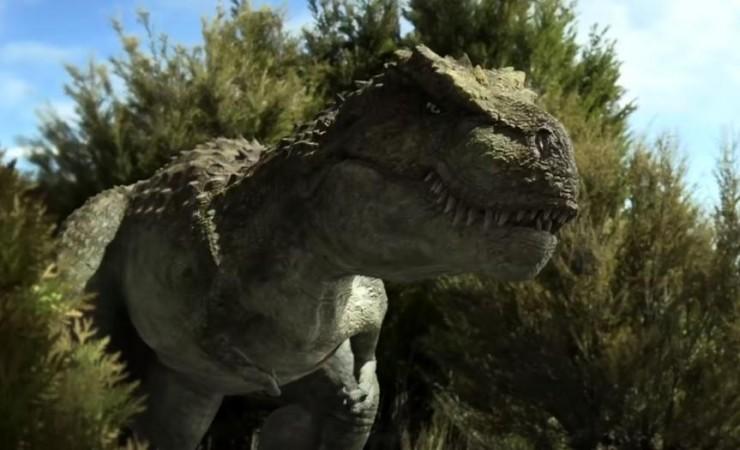It was around 66 million years ago back that a giant asteroid hit the earth, resulting in the extinction of dinosaurs.
After several years, when humans started excavating the blue planet, they discovered fossilized remains of dinosaurs from various regions of the earth. And now, an author has suggested that dinosaur remains can be discovered on the moon, and sometimes, even on Mars.

How dinosaur remains reached the moon and Mars?
This incredible claim was made by Peter Brannen in his book 'The Ends of the World: Volcanic Apocalypses, Lethal Oceans, and Our Quest to Understand Earth's Past Mass Extinctions'.
In the book, Brannen claimed that dinosaurs that once reigned on the earth as the most dominant species might have travelled to outer space on the debris caused by the asteroid that wiped them out.
"A rock larger than Mount Everest hit planet Earth travelling twenty times faster than a bullet. This is so fast that it would have traversed the distance from the cruising altitude of a 747 to the ground in 0.3 seconds. The asteroid itself was so so large that, even at the moment of impact, the top of it might have still towered more than a mile above the cruising altitude of a 747. In its nearly instantaneous descent, it compressed the air below it so violently that it briefly became hotter than the surface of the sun," wrote Brannen in his book, Daily Star reports.
The writer claimed that the asteroid hit that wiped out dinosaurs from the surface of planet earth had punched a hole of outer space vacuum in the atmosphere.
What would have happened if that doomsday asteroid missed earth?
The asteroid impact that happened around 66 million years ago was so deadly, and it pulled the earth into a state of nuclear winter for several years. However, experts believe that the earth would not have been in the present state if that asteroid had missed the land.
According to experts, if the doomsday asteroid was late for 30 seconds, it could have plunged into the Pacific or Atlantic ocean. Even though the impact could have resulted in the formation of huge waves, it would not have resulted in the extinction of dinosaurs.












!['Had denied Housefull franchise as they wanted me to wear a bikini': Tia Bajpai on turning down bold scripts [Exclusive]](https://data1.ibtimes.co.in/en/full/806605/had-denied-housefull-franchise-they-wanted-me-wear-bikini-tia-bajpai-turning-down-bold.png?w=220&h=138)
![Nayanthara and Dhanush ignore each other as they attend wedding amid feud over Nayanthara's Netflix documentary row [Watch]](https://data1.ibtimes.co.in/en/full/806599/nayanthara-dhanush-ignore-each-other-they-attend-wedding-amid-feud-over-nayantharas-netflix.jpg?w=220&h=138)



